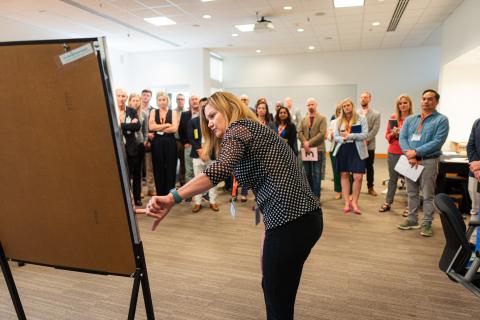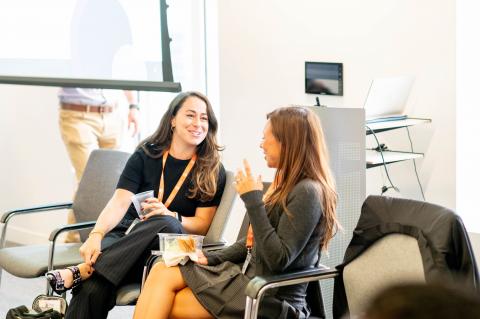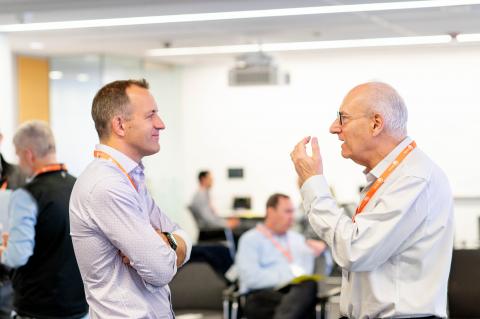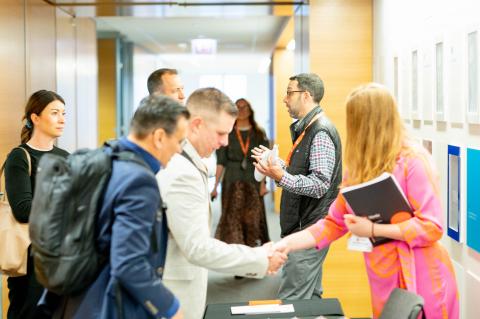How can you demonstrate the business value of skills as a CLO?
Skills, reskilling and upskilling are high on the CLO agenda right now. Peter Sheppard is Head of Global L&D Ecosystem at Ericsson. In this video, he talks about how to demonstrate the value of skills in your organisation and how to tie your reskilling efforts to key business goals.
Should you be thinking about skillforce planning instead of workforce planning?
Reducing skills shortages is the most obvious way for reskilling to create business value. "There's a lot of organisations now we're going through the great resignation," Peter says, "that are talking about skill shortages in their organisation. Now, what can help with skill shortages is if we migrate from workforce planning to skillforce planning. Or, if you like, skills-based workforce planning." That means identifying both the supply and the demand for skills in your organisation.
How can reskilling help you reduce cost?
"Hiring is tough at the moment," Peter admits. Finding the right people with the right skills to bring in is difficult, but that creates opportunities for L&D teams.
Focus not just on the skills you need but on adjacent skills. How can those adjacent skills lead you towards the skills you need? Someone with skills that are close to what you need, adjacent to what you need, can transfer into different roles and help save you money on hiring.
"It is undoubtedly cheaper to reskill rather than hire," Peter reminds us. "If we can use skills to actually speed up the hiring, and speed up the reskilling, then that will save money in the end as well."
How can you use reskilling to boost your retention?
Retention and engagement are also key areas where skills can deliver real business value. In Ericsson, Peter says, "one of our biggest challenges is enabling people to grow through improved internal mobility."
Are you using an internal Talent Marketplace? Are you helping your people to see the development and the growth that they can take from their current role?
"You can't do that," explains Peter, "until you can accurately manage the matching of skills to people."
But how can you achieve that?
Identify what matters to you as an organisation. What skills do you need to achieve that? What does it really mean to bring skills into the organisation?
Firstly Peter says, bring in a skills taxonomy. "That is about essentially understanding the skills that are relevant in your organisation and structuring those skills into some kind of meaningful hierarchy."
Then, connect those skills to jobs. "What really matters in the way we describe the work that we do in the job descriptions and so on," Peter thinks, "is that you start to describe the critical skills that matter."
And don't be afraid to draw on outside partners either. "There are many outside partners there, external partners that can help build a more dynamic skills taxonomy, a more dynamic understanding of the skills through scraping the web and using an AI capability to do that."
Join the Conversation
If you're a CLO, you can join Peter and other L&D leaders for free at the Learning Futures London Executive Knowledge Exchange. Or to find out more about how to join the conversation at a Knowledge Exchange in locations around the world and online, visit our events page.
Peter Sheppard is Head of Global L&D Ecosystem at Ericsson and an expert at leading transformation in corporate learning.
In 2007 Peter began to specialise more in learning & development due to a strong belief in its business relevance and the ability of individuals to grow. Previously, he had a broad HR background in L&D, talent management, employee relations and general HR. He worked with all aspects of business including sales, manufacturing, research and development. with companies including IBM, Philips Electronics and Ericsson.
Peter is a Fellow of both the Chartered Institute of Personnel & Development and Learning & Performance Institute and an international speaker on key L&D topics.









